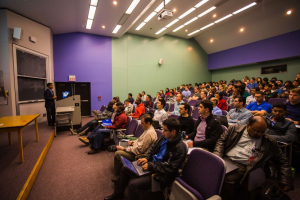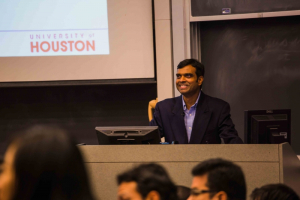Though its master’s degree track is barely a year old, the Cullen College’s Subsea Engineering Program boasts one of the most popular graduate courses at the University of Houston.
All 120 spots in the flow assurance course were filled within moments of registration opening, said Matt Franchek, founding director of the subsea engineering program. Even now, two months after registration closed, students are still seeking admission into the class.
The program – the first and only one of its kind in the nation – focuses on the design and maintenance of underwater equipment, tools and infrastructure used in offshore petroleum retrieval. The flow assurance course focuses on the flow of petroleum in an underwater environment.
According to Franchek, one of the reasons for the course’s popularity is its teacher. Phaneendra Kondapi, KBR adjunct professor, is an engineering manager with FMC Technologies. He’s also a gifted teacher who was awarded the 2013 Teaching Excellence Award from the Society of Petroleum Engineering International.
According to Kondapi, flow assurance is essential to oil field development as well as to petroleum production throughout the life of field. Future subsea engineers, then, must understand the principles and practice of flow assurance in an offshore environment. As a professional in the subsea field, Kondapi is perfectly positioned to teach both. He starts each class with a real-world problem for students to solve and then ties the issue to engineering theory.
Of course, the employment opportunities available to subsea engineering students also play a role in the course’s success. With the growing importance of offshore petroleum retrieval and the recently recognized needs for specialists in this field, subsea engineering jobs are plentiful, Franchek said. “Students enrolled in Dr. Kondapi’s flow assurance course are getting job offers just on taking that class. I don’t have anyone in subsea coming up to me and saying they can’t find a job.”

